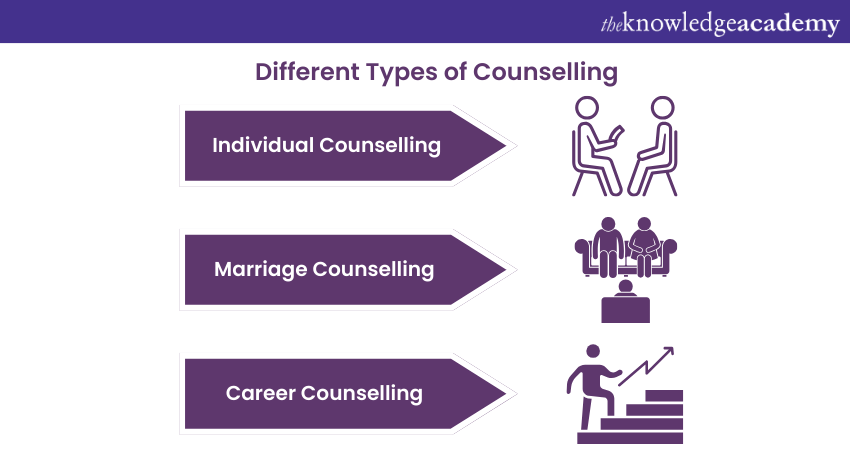Top Reasons Couples Choose couples counselling sessions to Reconnect
Wiki Article
Discovering the Advantages of Virtual Therapy in Modern Mental Healthcare
The surge of virtual therapy marks a significant shift in psychological healthcare. It provides boosted access, permitting people from varied histories to seek assistance without geographical restraints. Flexibility in scheduling suits differing way of lives, while the convenience of home can cultivate openness. The implications of these modifications expand beyond mere benefit. The advancing landscape of therapy raises essential concerns concerning its long-term effects on client interaction and therapy outcomes.Enhanced Access for All
Standard therapy often provides obstacles such as geographical location and scheduling problems, virtual therapy substantially boosts access for people looking for psychological health and wellness support. By eliminating the need for physical travel, virtual therapy allows customers from remote locations or those with wheelchair difficulties to get in touch with qualified experts. This mode of therapy can get to underserved populaces who might lack regional psychological health and wellness sources, thereby dealing with differences in access to care. Furthermore, virtual platforms can provide to diverse needs, providing services in numerous languages and fitting numerous cultural backgrounds. Clients can engage with a more comprehensive series of experts, giving them with choices that align with their specific requirements and preferences. This raised availability cultivates a much more comprehensive atmosphere, allowing people to seek assistance without the stigma often linked with in-person check outs. Overall, virtual therapy stands for a significant innovation in making mental healthcare extra easily accessible to all.Flexibility in Scheduling Procedure

As virtual therapy continues to obtain traction, its intrinsic flexibility in organizing sessions confirms to be a significant advantage for lots of people. Unlike conventional in-person therapy, virtual therapy permits customers to choose session times that finest fit their personal and professional dedications. This adaptability fits those with requiring job schedules, household obligations, or other commitments that can make participating in physical visits testing.
Furthermore, customers can easily reschedule or readjust their sessions as needed, lowering the anxiety linked with stiff appointment systems. The accessibility of different time ports throughout the week, consisting of nights and weekends, even more boosts ease of access. This flexibility not just motivates consistency present but also fosters a better dedication to the restorative process. Eventually, the flexibility in organizing sessions represents a transformative shift in psychological healthcare, empowering individuals to prioritize their health without sacrificing various other aspects of their lives.
Convenience of a Familiar Setting
The comfort of a familiar setting significantly improves the efficiency of virtual therapy for many clients. Engaging in therapy from the security of their very own homes allows people to really feel more secure, lowering anxiety that may come with conventional in-person sessions. This familiarity can help with open interaction, allowing clients to express their thoughts and feelings much more easily.Furthermore, the existence of individual products and the ability to control their environments can add to a complacency and leisure. Clients often report that being in a comfortable room permits them to focus more on the healing process instead than the setting itself.
Additionally, the casual nature of virtual sessions can help liquify obstacles that might exist in a traditional office environment, fostering a much deeper connection with therapists. In general, the convenience of familiar surroundings plays a vital function in enhancing the healing experience and efficiency for numerous individuals seeking psychological health assistance.
Wider Variety Of Healing Options
A broader series of restorative options appears through virtual therapy, enabling clients to gain access to different modalities that may not be viable in typical settings. This versatility allows people to discover diverse techniques such as cognitive-behavioral therapy, mindfulness practices, art therapy, and even specialized treatments like trauma-informed care or dialectical habits therapy.Customers can pick from a wider spectrum of therapists, consisting of those who specialize in niche areas or certain populaces, enhancing the chance of finding an ideal suit. Virtual systems usually give access to group therapy sessions, support neighborhoods, and workshops visit that might be geographically inaccessible otherwise.
This range encourages customers to participate in their healing procedure according to their special preferences and needs, possibly raising motivation and commitment to treatment. Because of this, the landscape of mental healthcare ends up being much more comprehensive and adaptable, catering to a larger variety of private experiences and difficulties.
Minimized Stigma Bordering Therapy
Accessing therapy through virtual systems contributes to a considerable reduction in the stigma traditionally connected with mental health and wellness treatment. By supplying a very discreet and personal setting, virtual therapy permits people to seek assistance without the concern of being judged or determined. This anonymity attract those who might or else hesitate to go after in-person therapy due to social assumptions surrounding mental health.Additionally, as the frequency of virtual therapy boosts, it normalizes the discussion around psychological wellness, making it a more appropriate component of everyday life. Individuals frequently really feel extra comfortable discussing their experiences online, advertising openness and reducing sensations of seclusion. The ease of access of these services also motivates a broader demographic to engage with psychological health resources, fostering a society of support instead of pity. Eventually, the surge of virtual therapy plays a crucial role in reshaping attitudes towards looking for aid, adding to a more accepting culture pertaining to mental health difficulties.
Cost-Effectiveness and Price

Lowered Session Costs
Several individuals looking for mental wellness assistance discover that virtual therapy considerably reduces session costs compared to typical in-person choices. The elimination of travel costs and pause work commonly adds to general financial savings. In addition, several virtual therapists provide affordable prices due to lower overhanging costs associated with maintaining a helpful hints physical office. This shift in expenditure permits customers to accessibility top quality mental health and wellness solutions without the financial strain that may come with traditional therapy. For several, this price makes it possible for more regular sessions, which can improve therapy outcomes. Consequently, virtual therapy not just democratizes accessibility to mental health care yet also provides a sustainable economic version that lines up with clients' budget plans, making psychological wellness support much more attainable for a larger audience.Expanded Gain Access To Options
While traditional therapy often offers logistical obstacles, virtual therapy considerably broadens access alternatives for individuals looking for mental health treatment. By eliminating the requirement for traveling and permitting versatile scheduling, virtual therapy accommodates varied way of livings and commitments. This availability is especially beneficial for those in remote locations or with mobility obstacles. In addition, the cost-effectiveness of virtual therapy minimizes monetary stress, making mental wellness solutions more obtainable. Many platforms provide tiered prices or moving range charges, promoting price. Insurance provider significantly recognize virtual therapy, further enhancing its financial availability. In general, virtual therapy not just widens the scope of who can obtain treatment however additionally addresses economic barriers, making mental health and wellness support much more comprehensive and possible for all.Enhanced Connection of Treatment
Enhanced connection of treatment emerges as a considerable benefit of virtual therapy in contemporary psychological health care. This approach allows individuals to maintain regular communication with their specialists, regardless of geographical barriers or organizing disputes. low cost therapy. The versatility of virtual sessions fosters regular check-ins, which are crucial for keeping an eye on progress and adjusting treatment intends as requiredAdditionally, digital wellness records and telehealth platforms facilitate smooth information sharing among care service providers. This interconnectedness guarantees that all specialists associated with an individual's care are upgraded on treatment developments, leading to more collaborated and reliable treatments.
People commonly experience minimized anxiousness and enhanced interaction due to the comfort of accessing therapy from familiar atmospheres. Such ease of access boosts adherence to therapy programs, inevitably improving outcomes - couples counselling. To sum up, virtual therapy not only bridges gaps in mental health services however likewise fortifies the connection of treatment, a crucial component of successful healing partnerships
Regularly Asked Questions
Just How Does Virtual Therapy Ensure Confidentiality and Privacy for Customers?
The existing concern addresses the measures virtual therapy utilizes to protect customer confidentiality. Using encrypted systems, safe and secure logins, and compliance with policies like HIPAA, virtual therapy guarantees that sensitive info continues to be private and unattainable to unapproved individuals.Can I Switch Over Therapists Conveniently in Virtual Therapy?
Switching over therapists in virtual therapy is typically uncomplicated. Customers can communicate their desire for a modification via the system, permitting for versatility in locating a far better match without the logistical challenges of in-person visits.What Technology Do I Need for Virtual Therapy Sessions?
To join virtual therapy sessions, an individual typically needs a trusted web connection, a computer system or mobile phone with a video camera and microphone, and access to a protected video conferencing platform Home Page defined by their therapist.
Are Virtual Therapy Procedure as Effective as In-Person Sessions?
Current studies show that virtual therapy sessions can be just as reliable as in-person sessions, depending on the individual's choices and conditions. Factors such as convenience and ease of access may enhance the overall therapeutic experience for some customers.What Should I Do if I Experience Technical Issues Throughout a Session?
If technical problems develop during a session, one ought to calmly connect the problem to the therapist, effort to reconnect, or switch to a backup technique. Patience and flexibility are essential in taking care of these interruptions.Report this wiki page